Practice Tools
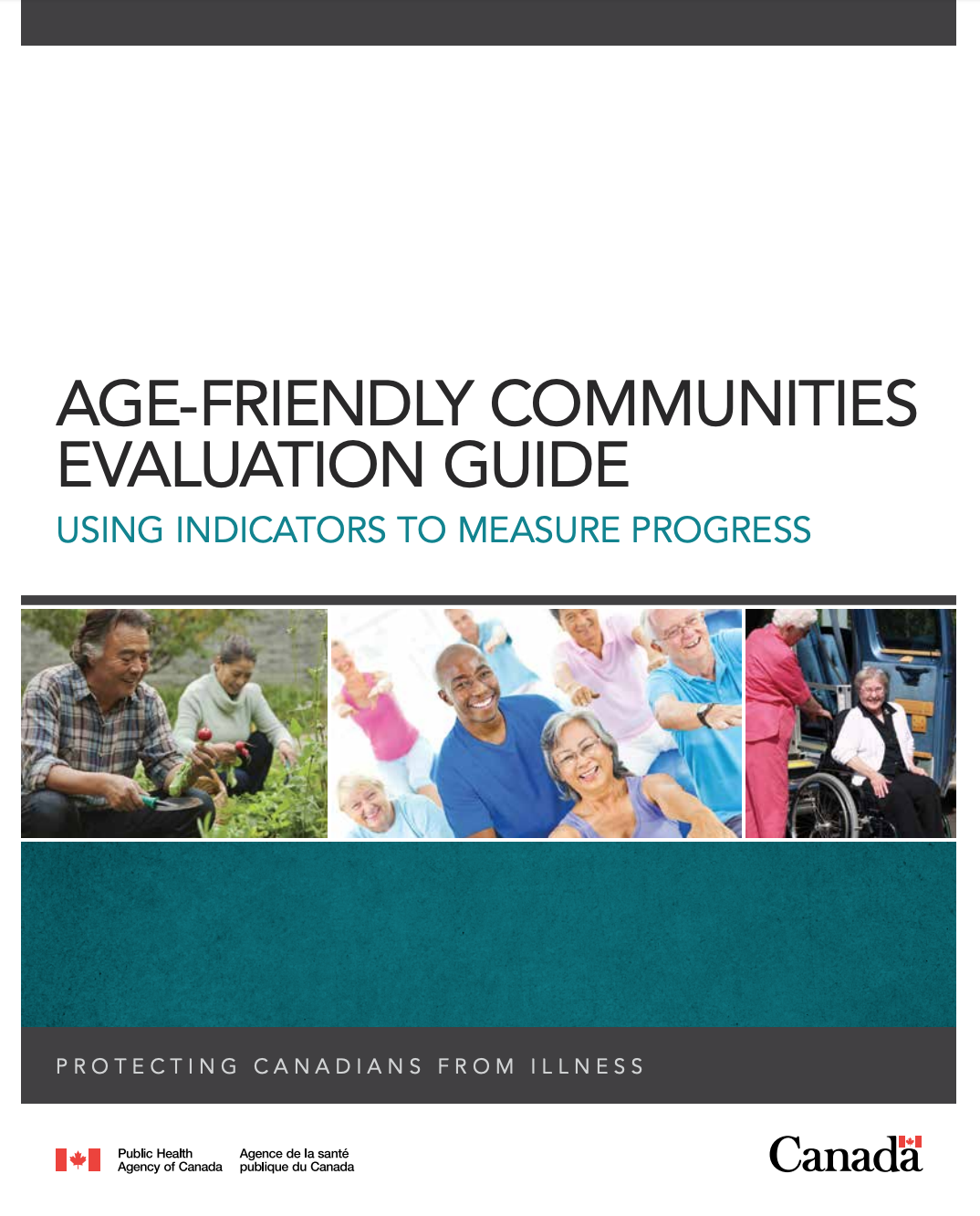 "The Public Health Agency of Canada has prepared the Age-Friendly Communities Evaluation Guide to provide communities with practical information on how to use indicators to measure progress and evaluate their age-friendly initiatives. Age-friendly communities are those communities that are taking steps to help their older residents remain healthy, active and independent, and to continue to make important contributions as they age.
"The Public Health Agency of Canada has prepared the Age-Friendly Communities Evaluation Guide to provide communities with practical information on how to use indicators to measure progress and evaluate their age-friendly initiatives. Age-friendly communities are those communities that are taking steps to help their older residents remain healthy, active and independent, and to continue to make important contributions as they age.
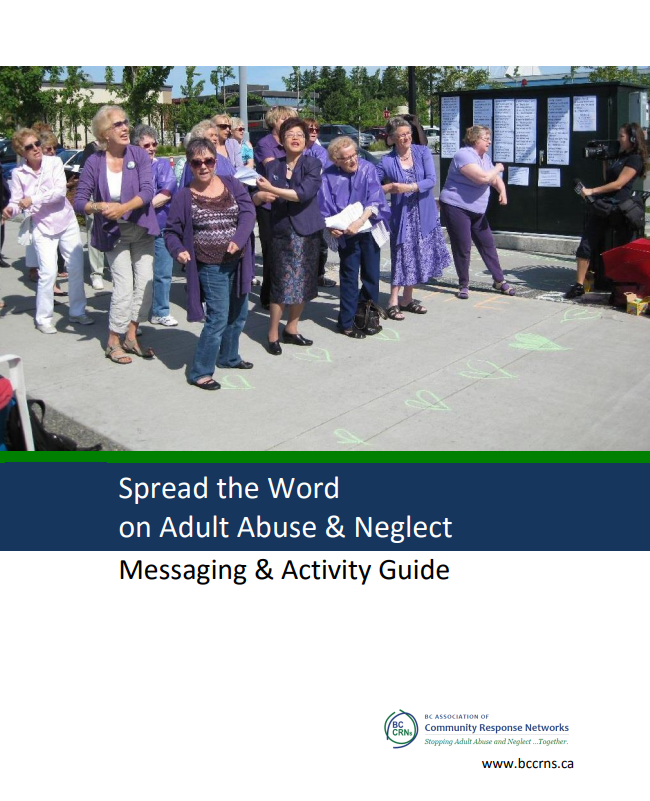
To help coordinate consistent messaging across the CRNs in BC during major provincial/national events on adult abuse and neglect throughout the calendar year.
How to use this guide:
Use this guide as your starting point for:
- Content. (No need to write anything from scratch!)
- Activities to compliment or refresh your community level efforts.
- For those on social media, or thinking about starting a social media presence, use the sample posts in this guide to keep your social media content fresh throughout the year, and aligned to other CRNs. Copy and paste as much or as little as you choose.
This guide contains samples of:
- Awareness building activities.
- Media releases.
- Posts for social media (e.g. Twitter, Facebook).
Note: Link your activities to your CRN’s mandate, and the intent of the event or campaign you choose to participate in.
Who is this guide is for:
CRN Coordinators. Regional Mentors''
Source: BC Association of Community Response Networks (BCCRN)
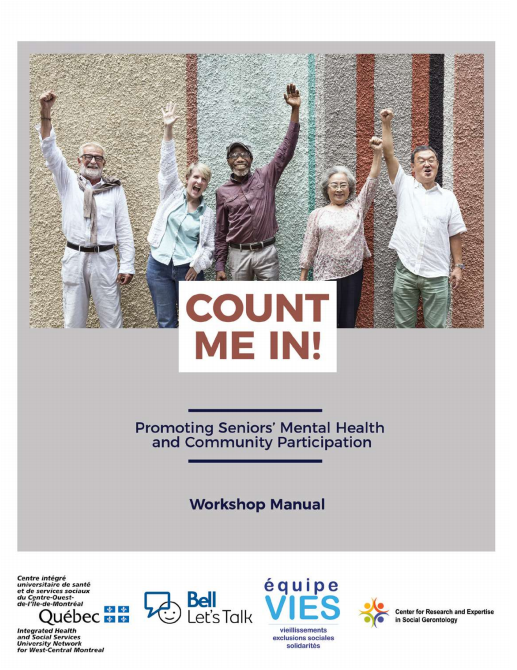
''Count Me In! is a multifactorial program that promotes the community participation of seniors experiencing psychosocial difficulties, with or without mental illness. The specific objective of the program is to encourage them to participate in resources that offer stimulating activities and opportunities for social interaction.''
Source: Centre for Research and Expertise in Social Gerontology of the CIUSSS West-Central Montreal
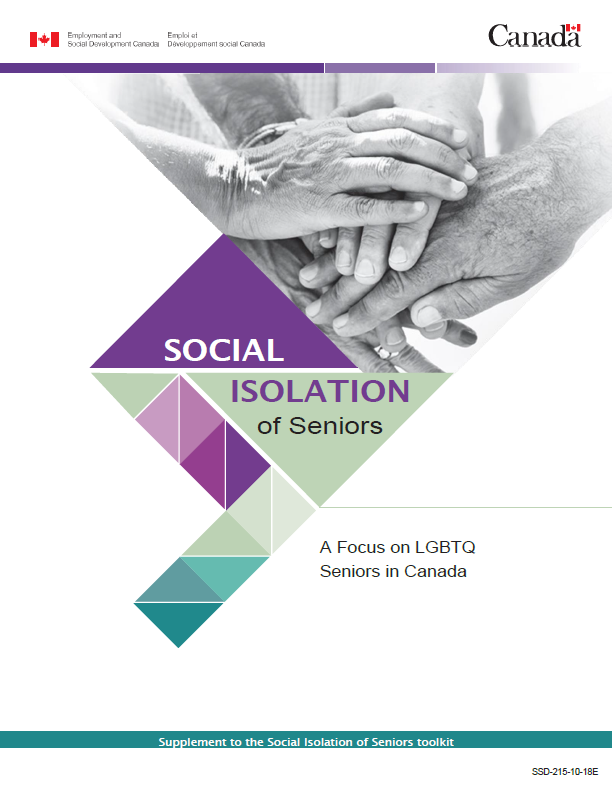
This supplement is a resource to help organizations and service providers adopt approaches to help lesbian, gay, bisexual, transgender and queer (LGBTQf) seniors strengthen human connections. Social isolation is a silent reality experienced by many seniors, particularly LGBTQ seniors. It is hoped that this resource will heighten awareness and sensitivity and help organizations address LGBTQ seniors’ particular social needs.
The materials included in this supplement are drawn from current research, stakeholder consultations (including a workshop), an environmental scan of existing programs and services, and the lived experiences of LGBTQ seniors. This supplement consists of two parts: Part 1 explores social isolation from the perspective of LGBTQ seniors and Part 2 provides practical tools and resources to encourage human connections to reduce social isolation.
Source: Employment and Social Development Canada
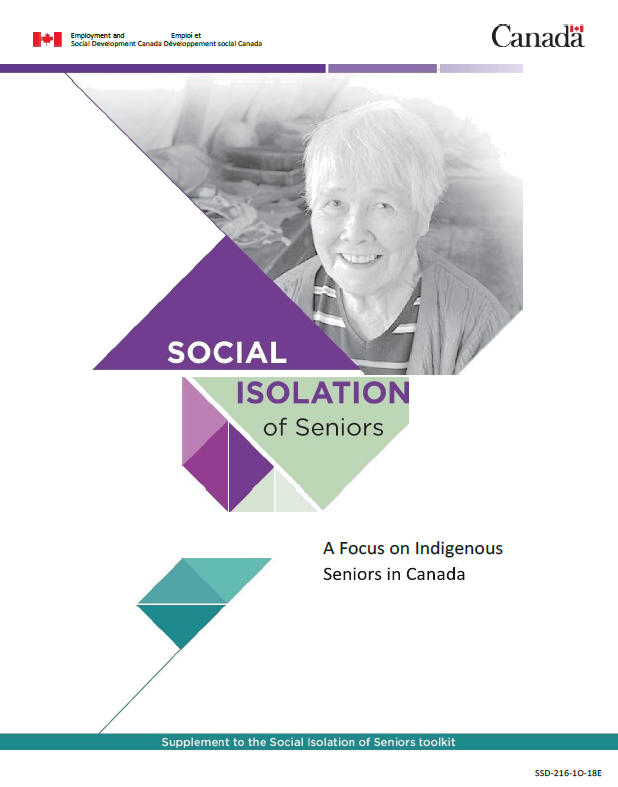
''This supplement is a resource to help organizations and service providers adopt approaches to help Indigenous seniors strengthen human connections. Social isolation is a silent reality experienced by many seniors, and particularly Indigenous seniors. It is hoped that this resource will heighten awareness and sensitivity and help organizations address their particular social needs.
The materials included in this supplement are drawn from current research, consultations (including a workshop) with Indigenous partners and other stakeholders, an environmental scan of existing programs and services, and experiences of Indigenous seniors themselves. This supplement consists of two parts: Part 1 explores social isolation from the perspective of Indigenous seniors and Part 2 provides practical tools and resources to encourage human connections to reduce social isolation.''
Source: Employment and Social Development Canada
Page 3 of 15

















